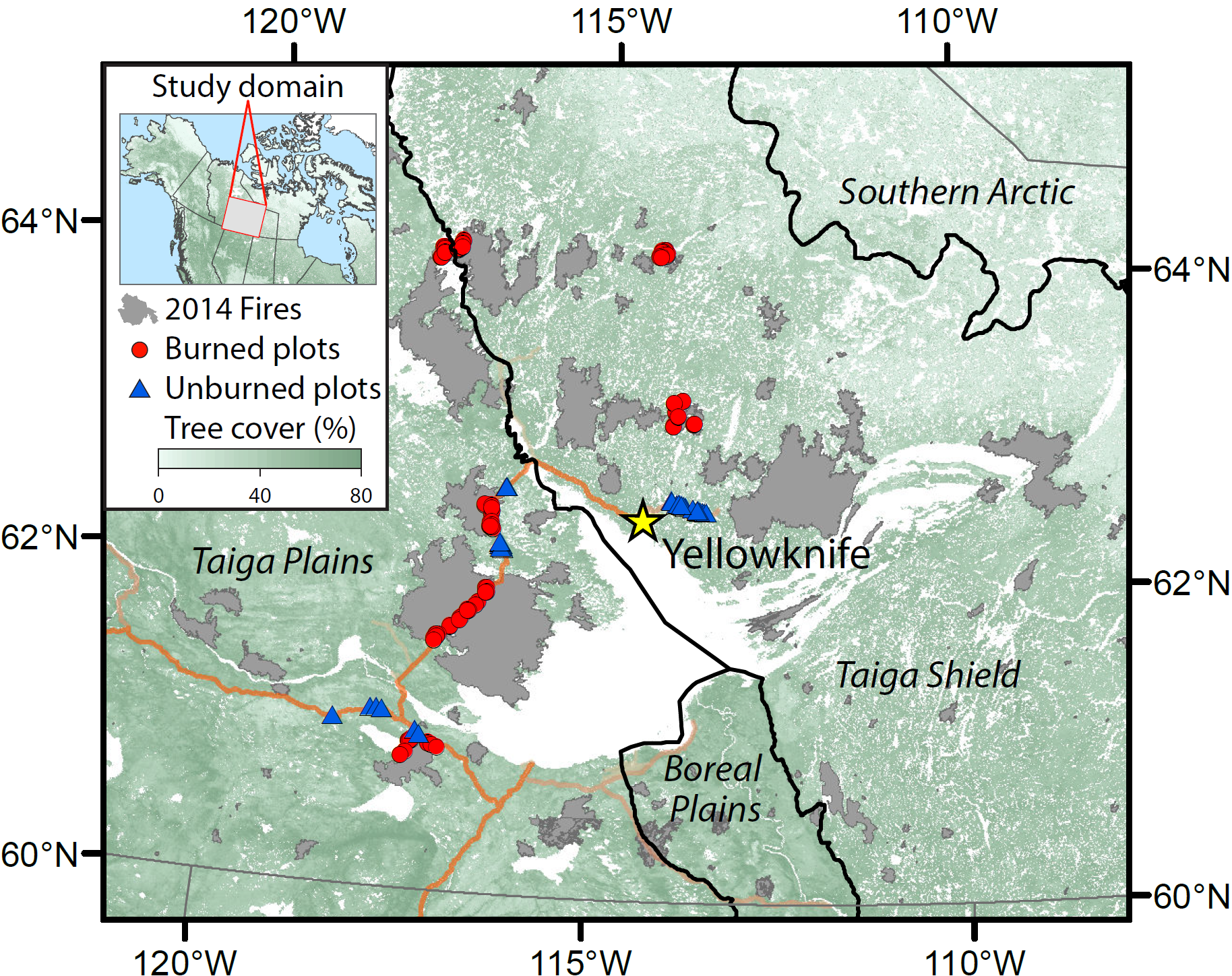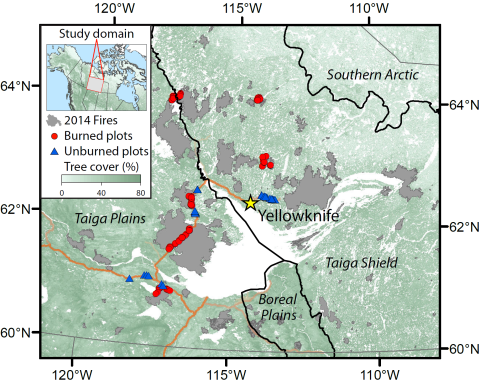ABoVE: Wildfire Carbon Emissions and Burned Plot Characteristics, NWT, CA, 2014-2016
This dataset provides estimates of wildfire carbon emissions and uncertainties at 30-m resolution, and measurements collected at burned and unburned field plots from the 2014 wildfire sites near Yellowknife, Northwest Territories (NWT), Canada. Field data were collected at 211 burned plots in 2015 and include site characteristics, tree cover and species, basal area, delta normalized burn ratio (dNBR), plot characteristics, soil carbon, and carbon combusted. Data were collected at 36 unburned plots with characteristics similar to the burned plots in 2016. The emission estimates were derived from a statistical modeling approach based on measurements of carbon consumption at the 211 burned field plots located in seven independent burn scars. Estimates include uncertainty of field observations of aboveground and belowground combustion, as well as prediction uncertainty from a multiplicative regression model. To apply the model across all 2014 NWT fire perimeters, the final model covariates were re-gridded to a common 30-m grid defined by the Arctic Boreal and Vulnerability Experiment (ABoVE) Project. The regression model was then applied to burned pixels defined by a threshold of Landsat-derived differenced Normalized Burn Ratio (dNBR) within fire perimeters. Derived carbon emissions and uncertainty in g/m2 are provided for each 30-m grid cell. The modeled NWT domain encompasses 29 tiles within the ABoVE 30-m reference grid system.
Read more about this study from Northern Arizona University.
See other data from the ABoVE campaign.
Related Papers:
Walker X.J., J. Baltez, S. Cumming, N. Day, J. Johnstone, B. Rogers, K. Solvik, M. Turetsky, and M. Mack. (2018) Soil organic layer combustion in boreal black spruce and jack pine stands of the Northwest Territories, Canada. International Journal of Wildland Fire. https://doi.org/10.1071/WF17095
Walker, X.J., B.M. Rogers, J.L. Baltzer, S.G. Cumming, N.J. Day, S.J. Goetz, J.F. Jpohnstone, E.A.G. Schuur, M.R. Turetsky, and M.C. Mack. 2018. Cross-scale controls on carbon emissions from boreal forest megafires. Glob Change Biol. 1–15. https://doi.org/10.1111/gcb.14287
Data Citation:
Walker, X.J., B.M. Rogers, J.L. Baltzer, S.R. Cummings, N.J. Day, S.J. Goetz, J.F. Johnstone, M.R. Turetsky, and M.C. Mack. 2018. ABoVE: Wildfire Carbon Emissions and Burned Plot Characteristics, NWT, CA, 2014-2016. ORNL DAAC, Oak Ridge, Tennessee, USA. https://doi.org/10.3334/ORNLDAAC/1561
Data Center: ORNL DAAC
Sponsor: NASA EOSDIS


